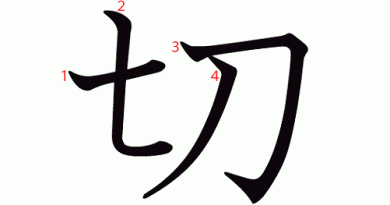Compare 行きます 来ます and 帰ります
When learning Japanese, many people feel very confused about the three verbs: ikimasu, kimasu and kaerimasu (iku, kuru and kaeru). In this post, Learn Japanese Daily will introduce to you the lesson: Compare 行きます 来ます and 帰ります.

Contents
Compare 行きます and 来ます
行きます
Meaning and usage :
To go to a certain place.
It goes with particles : から、へ、に.
When using いきます, the subject stands (actually stands or imagines that he stands) at the starting place and goes to (or thinks of) another place.
Example :
Tokyo からいきます: I go from Tokyo. The speaker stand in Tokyo, or in another place and imagines that he is standing in Tokyo and then goes somewhere. からいきます means “to go from somewhere”.
Tokyoへ(に)いきます: I go to Tokyo. The speaker stands at the starting place or somewhere on the way to Tokyo and is heading to Tokyo.
いきます? Do you go? The speaker and the listener are not at the destination, and they are talking about going from the current place to the destination.
Vていきます means “going while doing V”. For example: Tokyoへ(に)ほんをもっていきます : I bring a book to Tokyo.
In addition, Vていきます also expresses that something continue from the present to the future. For example : 将来(しょうらい)自分(じぶん)はどうやって生(い)きていくかがわかりません : I don’t know how I will live in the future (from now on).
Compare 行きます and 来ます
来ます
Meaning and usage :
To come. The speaker stands at the destination and talks about he or someone else comes to that destination from a certain place.
It goes with the particle : から
When using きます, the subject stands (actually stands or imagines that he stands) at the destination (or somewhere belongs to him such as: his house, his school, etc.) and talks about him (or someone else) coming to the destination from a certain place.
Example :
イギリスからきました : I’m (come here) from England. The speaker stands at the destination (For example : Japan) and talks about coming there from England. Since the speaker came already, we use the past tense: きました.
イギリスからきましたか : Are you from England? The speaker stands at the destination (For example : Japan) and asks the listener if he / she is from England or not. Since the listener came already, we use the past tense: きました.
きますか?Do you come? The speaker stands at the destination (house, party…) and asks the listener who stands at another place if he / she comes or not. When answering this question, the listener is in a different place from the destination and goes to the destination. Therefore, the listener will answer: いきます (I will go) and doesn’t answer: きます.
あそびにきてください。Please come to play. In this case, the speaker and the listener may or may not be at the speaker’s home. Because the house belongs to the speaker, the speaker still use きます even if he / she is not at home.
Vてきます means “Someone has come to a place and done V at the same time” . Example : ほんをもってきますか : Do you bring a book? (to bring to the speaker’s place)
In addition, Vてきますis also used to talk about an action taken in the past and continued to the present. 顔(かお)が赤(あか)くなってきた : My face is getting red. 帰(かえ)ってきた : I came back.
Some special cases:
いってきます:I’m going! / See you later! – This is a greeting when you leave. It is used as a proverb.
行ってくる: I’ll be back.
Compare 行きます and 来ます
Comparison table between ikimasu and kimasu
| いきます | きます | |
| Meaning | To go | To come |
| Subject | Not standing at the destination | Standing at the destination or somewhere belongs to him / her (home, country…) |
| Time | Present –> Future | Past –> Present |
| に + . . . | Going to the destination | Standing at the destination and talking about going there |
| から . . . | Going from somewhere | Coming from somewhere (from the destination and talking about coming there) |
帰ります
Meaning and usage :
To go back / to return to a certain place belonging to the speaker (home, country).
It usually goes with particles : へ、、に、から
Example :
にほんからかえります : I go back from Japan.
イギリスへ/にかえります : I return to England.
Above is Compare 行きます 来ます and 帰ります. If there is something unknown or missing, Learn Japanese Daily is looking forward to your comment.
See other similar posts at category: Japanese for beginers

